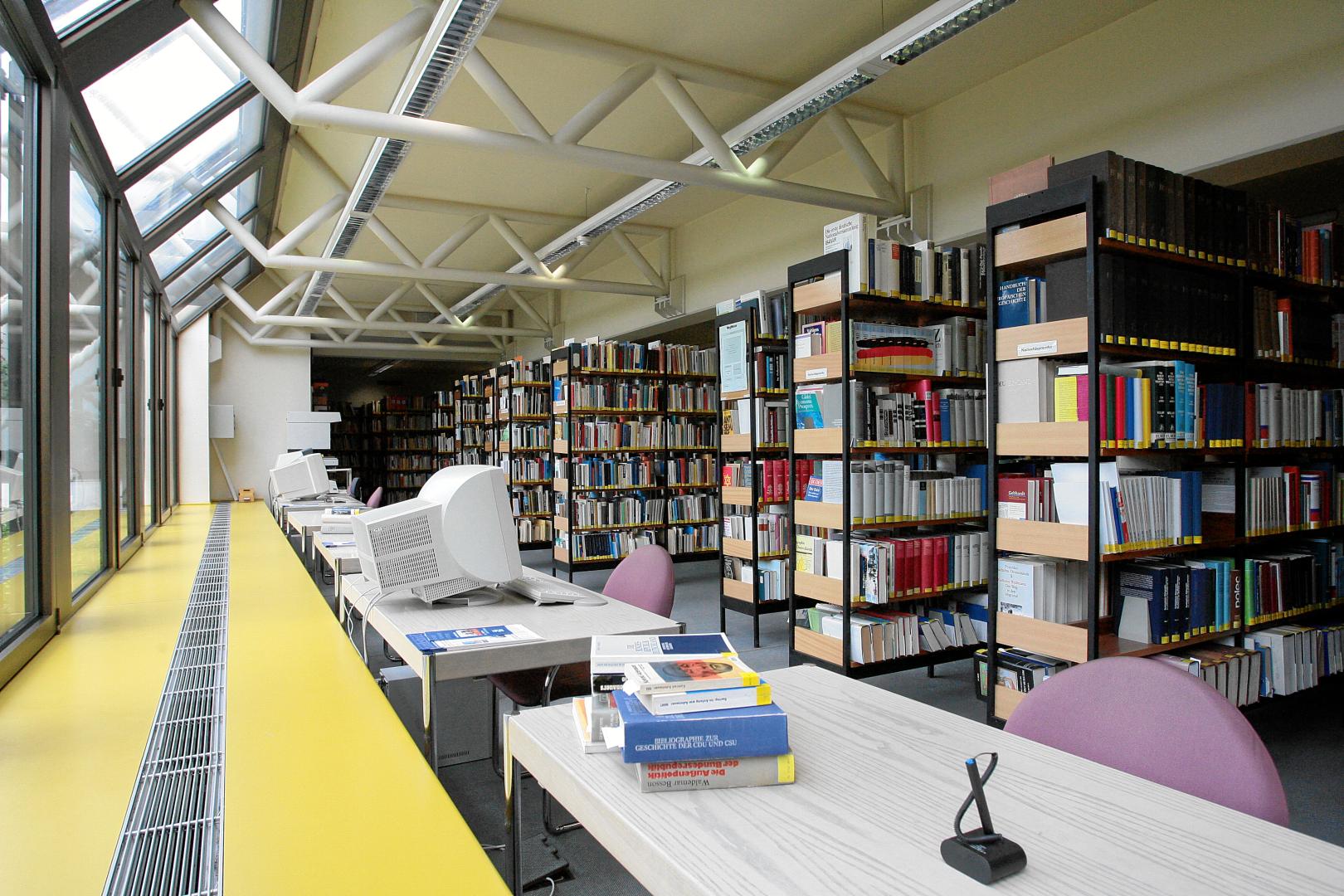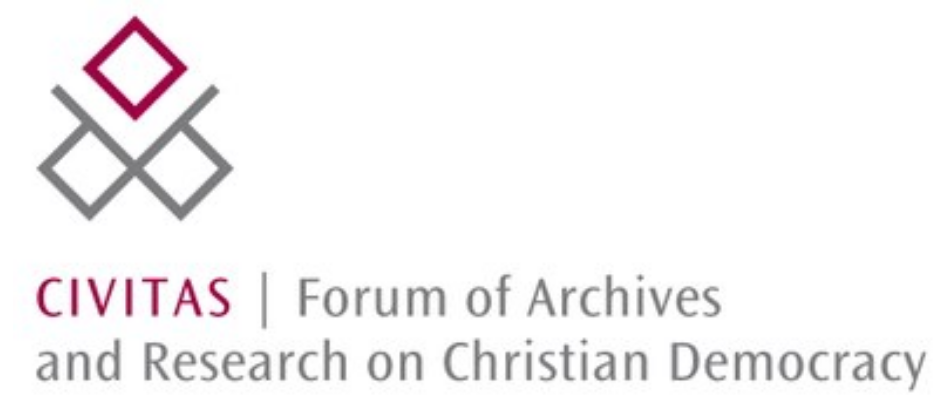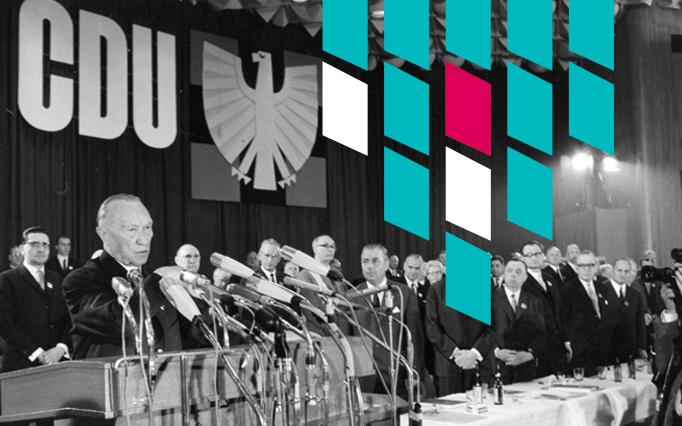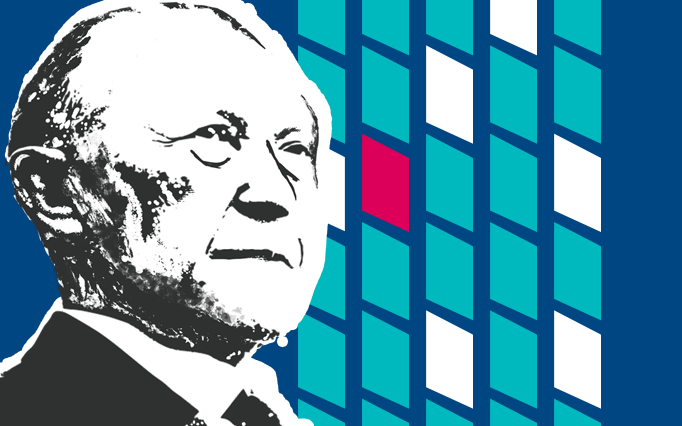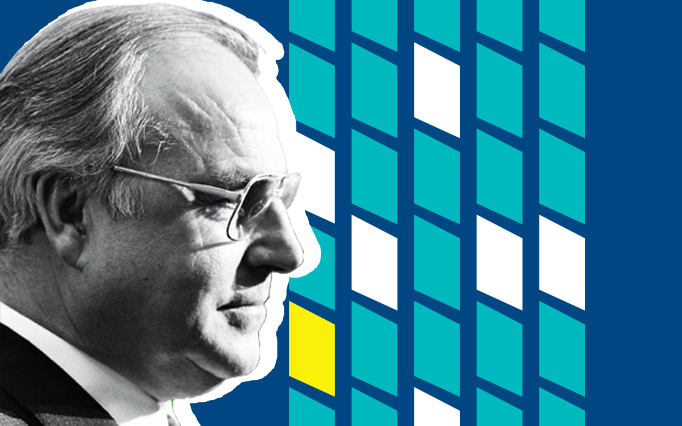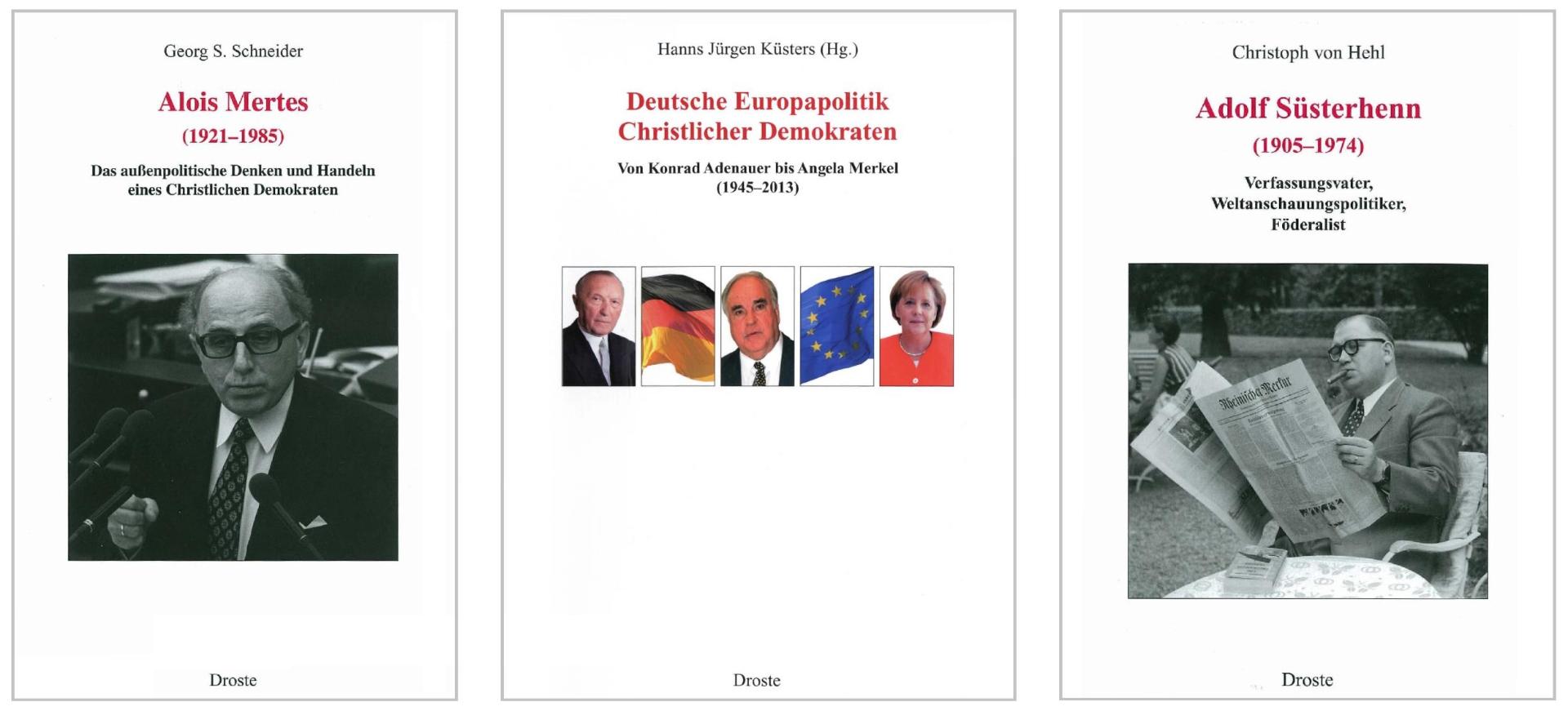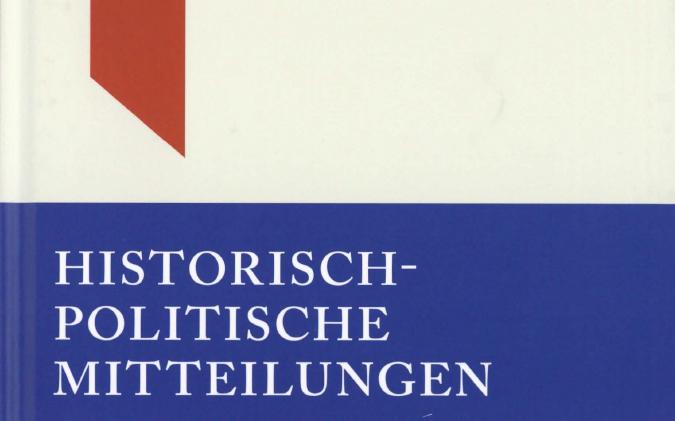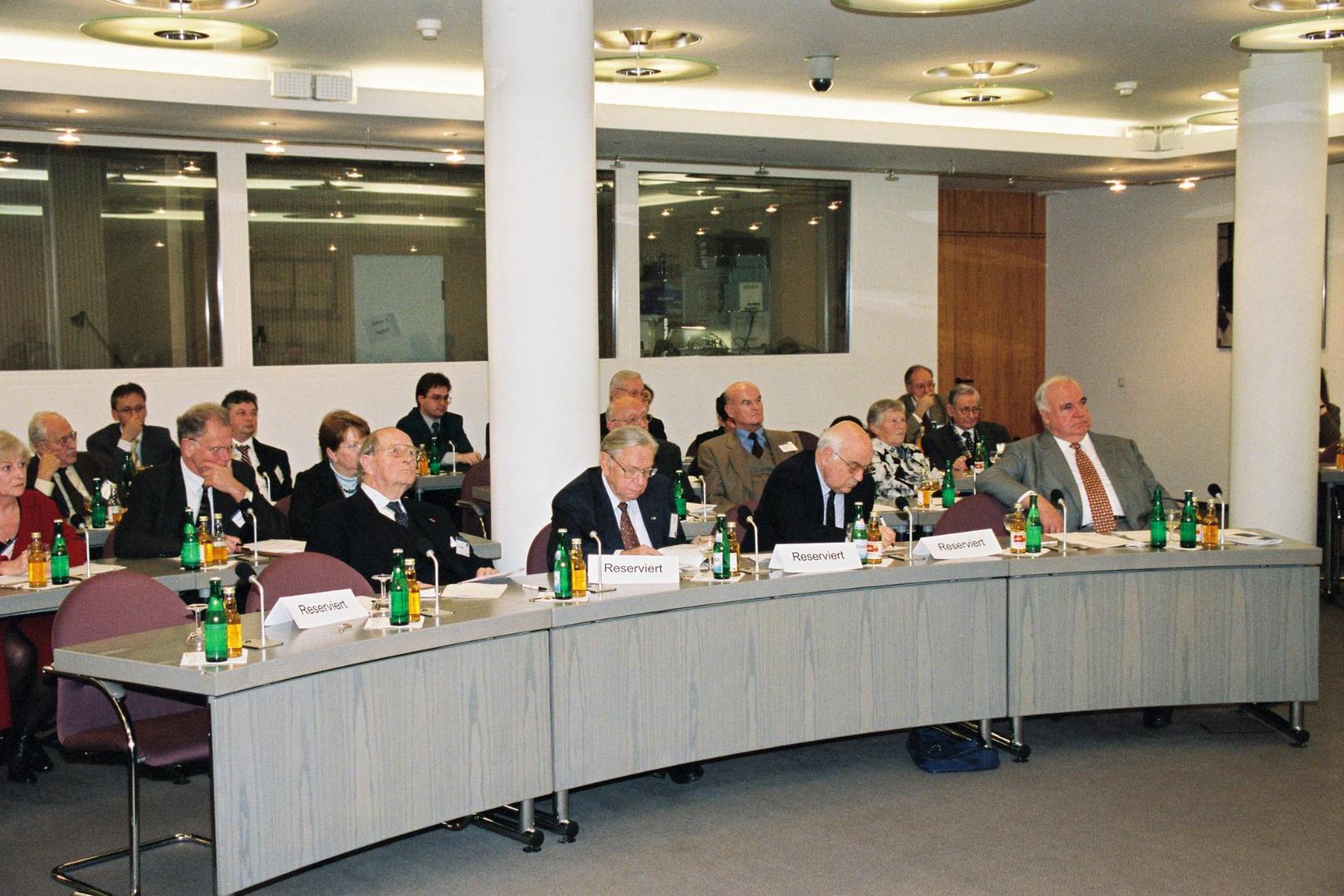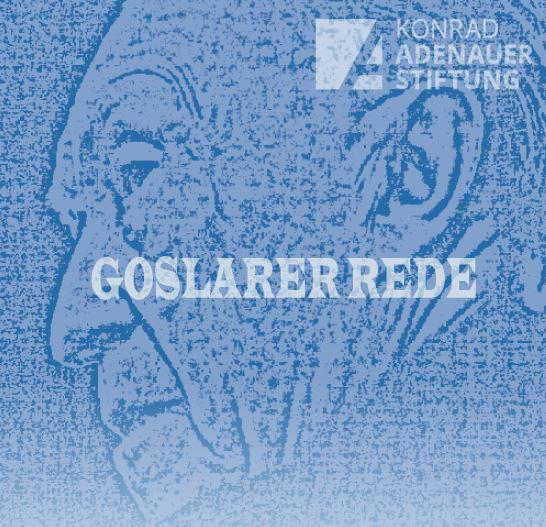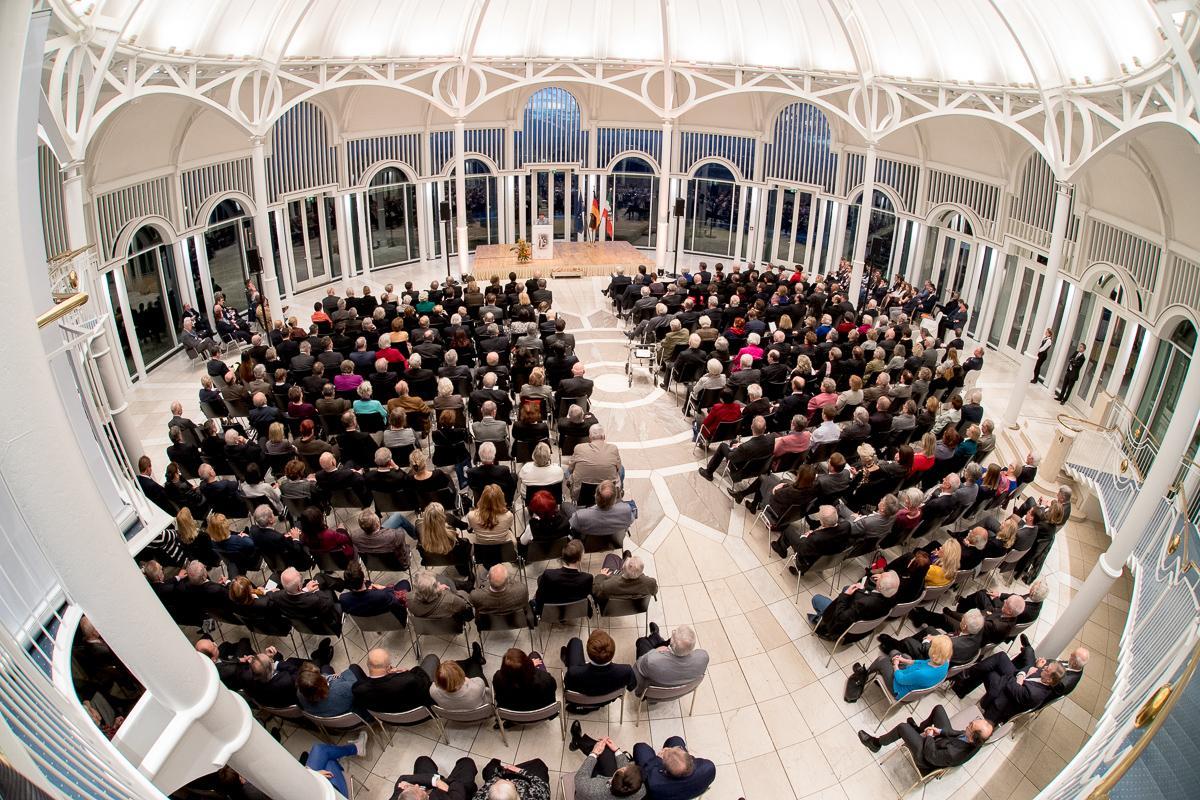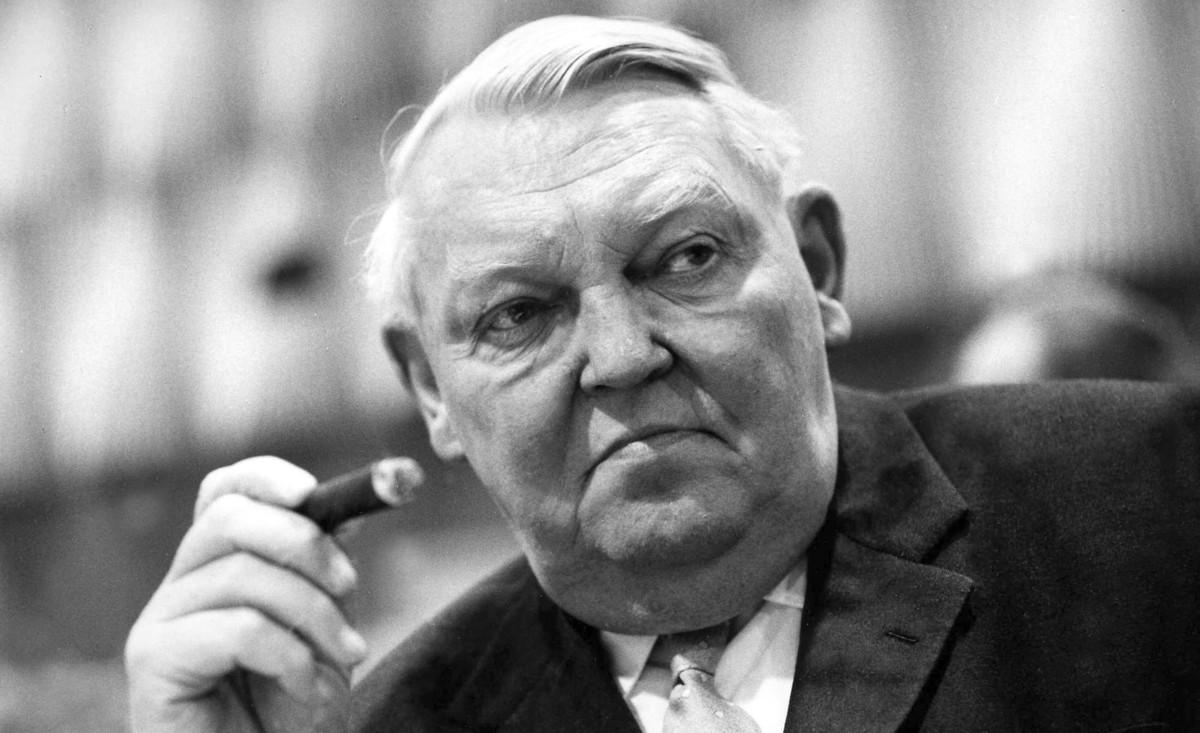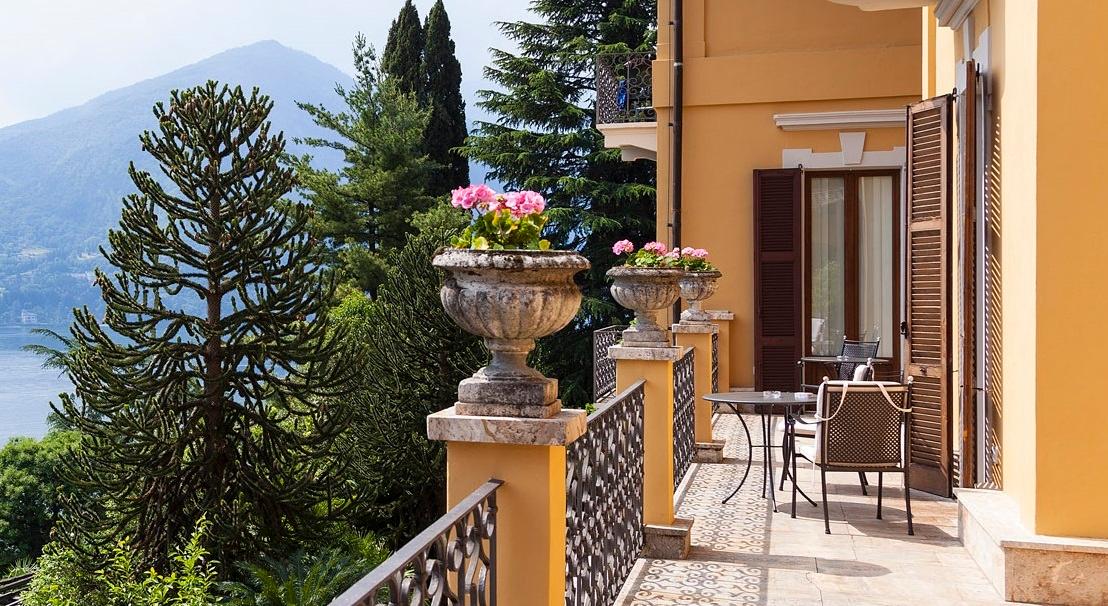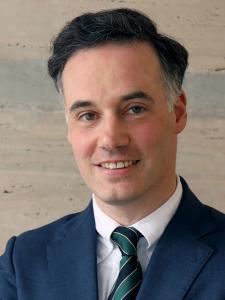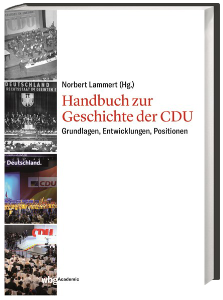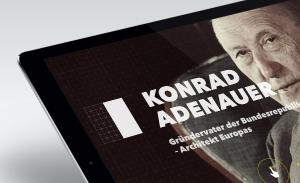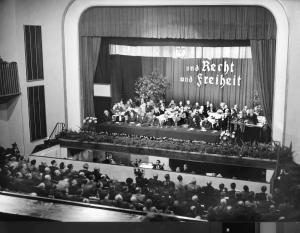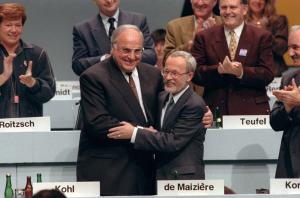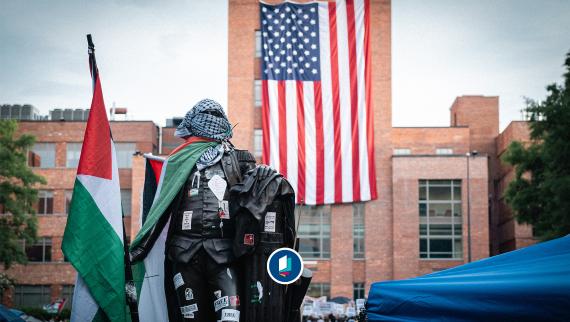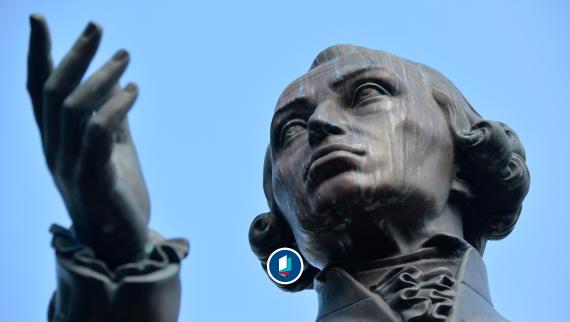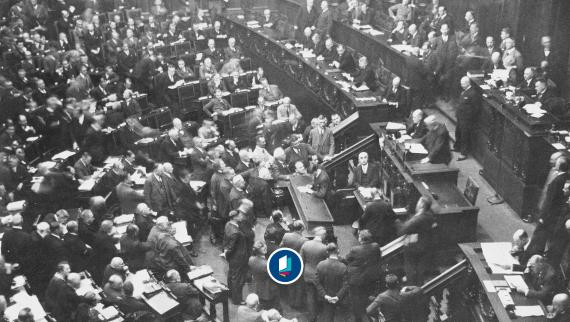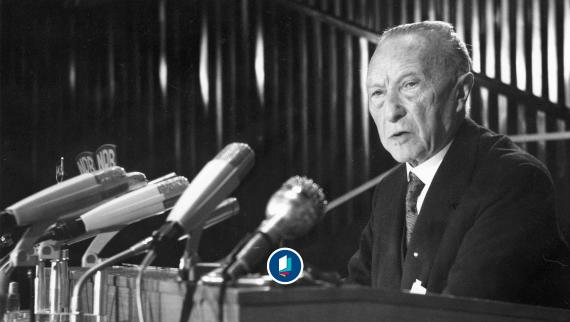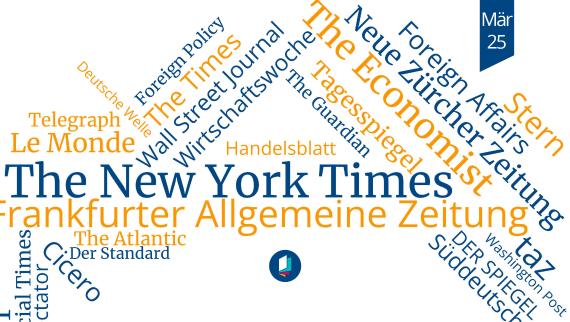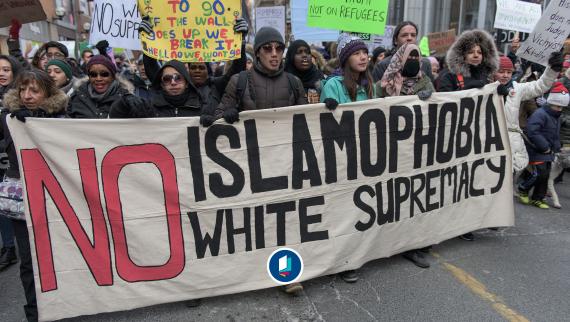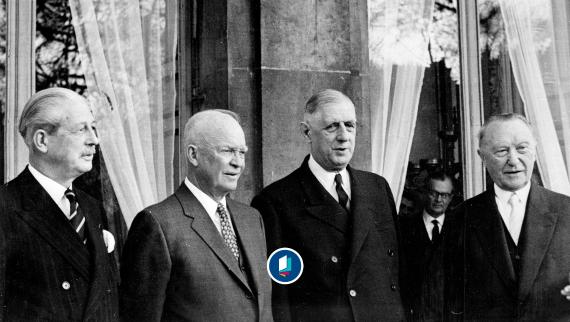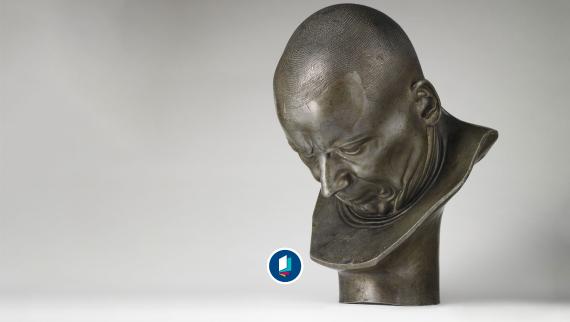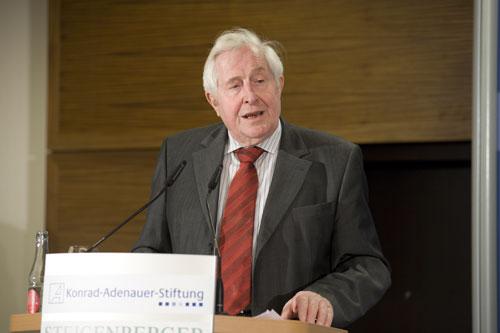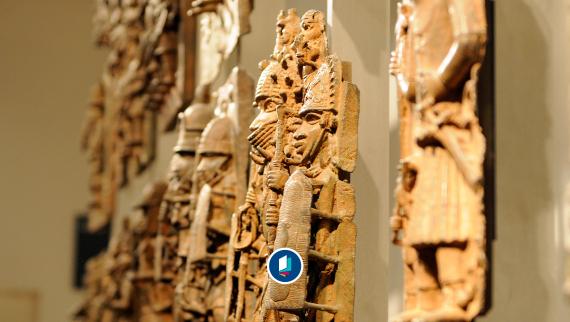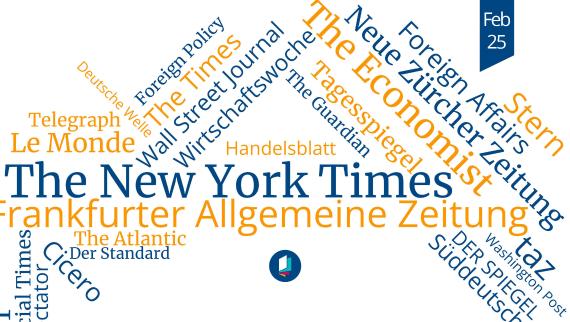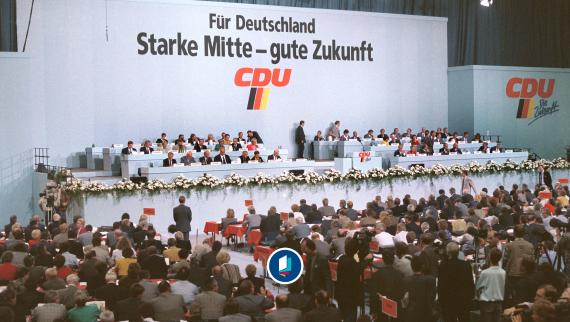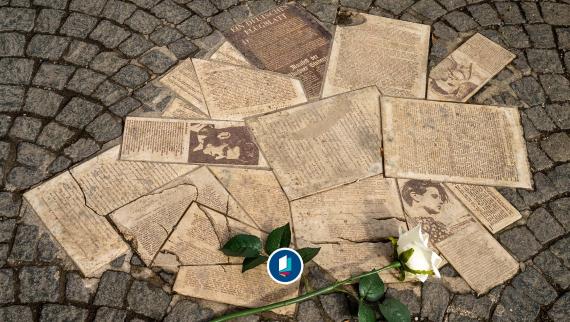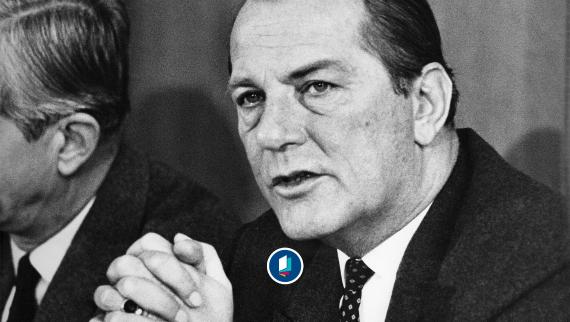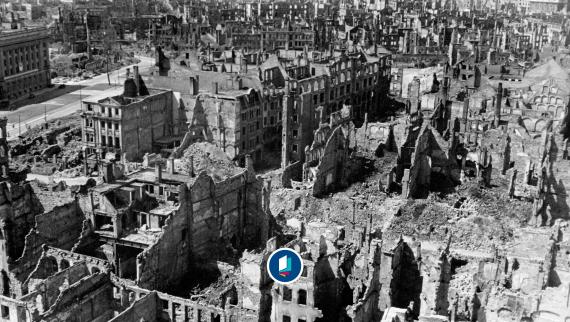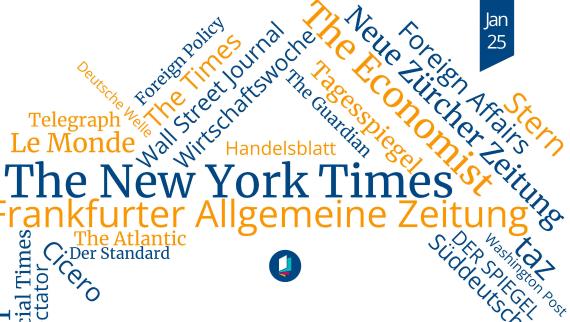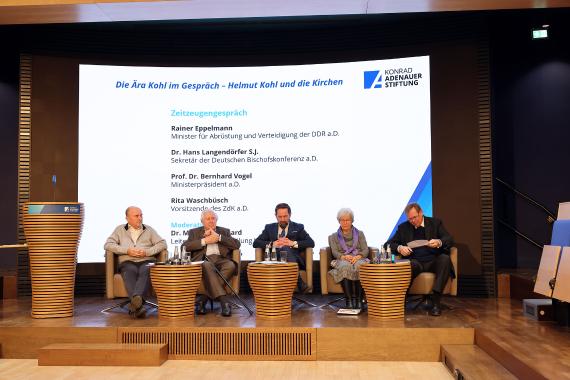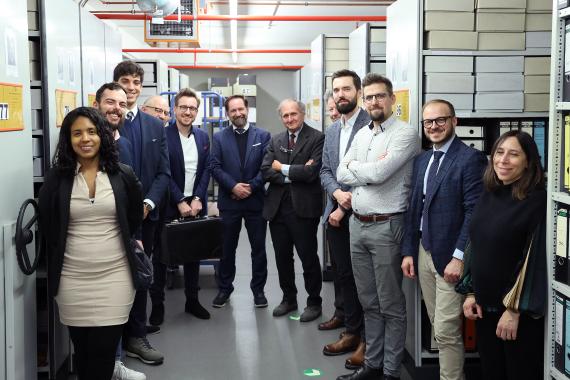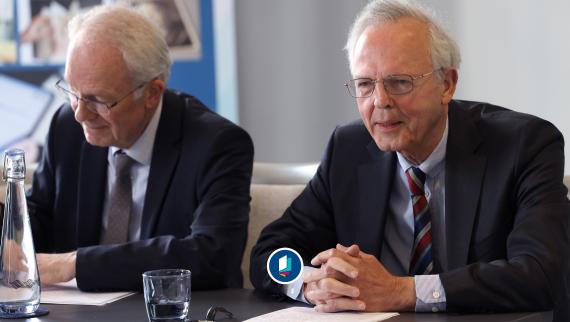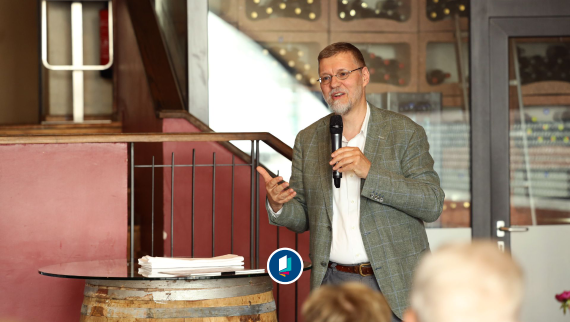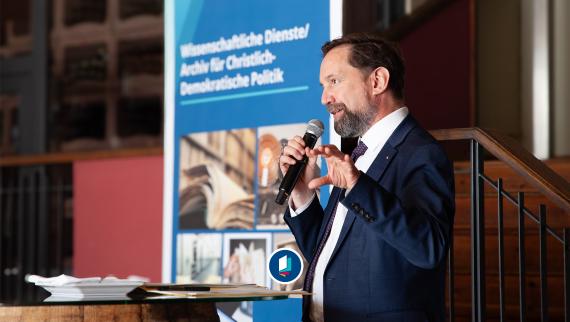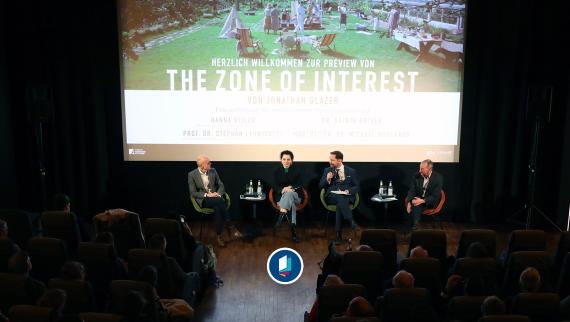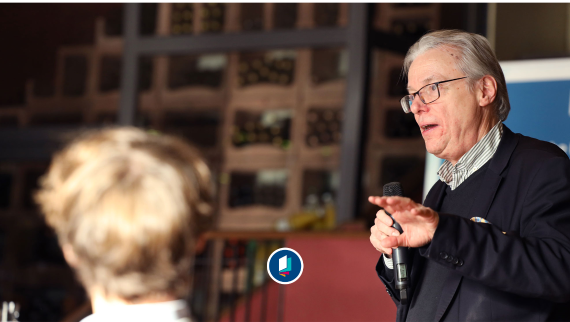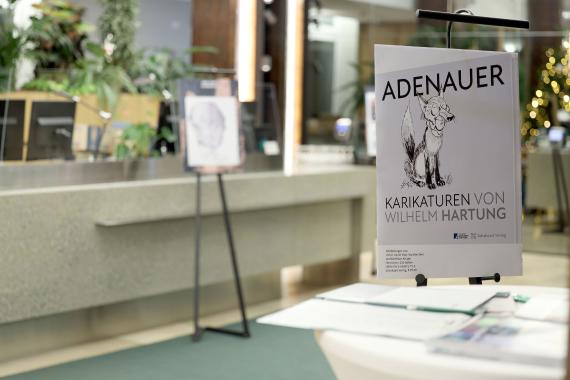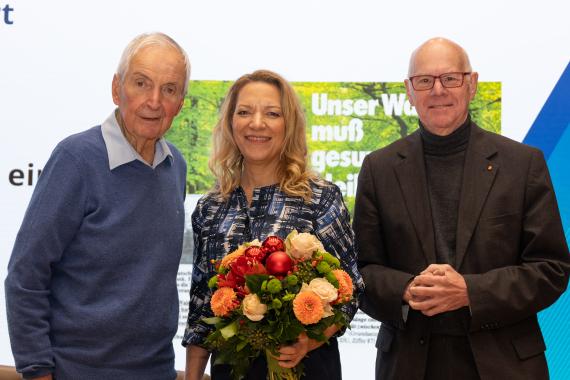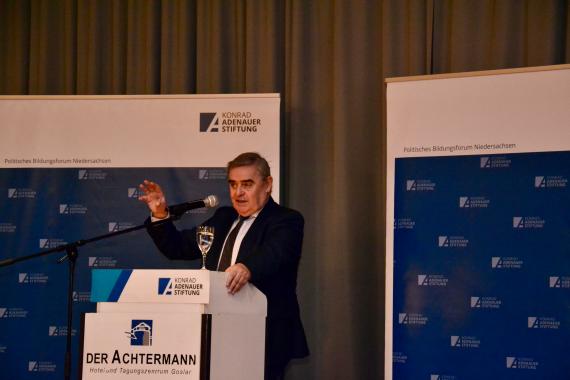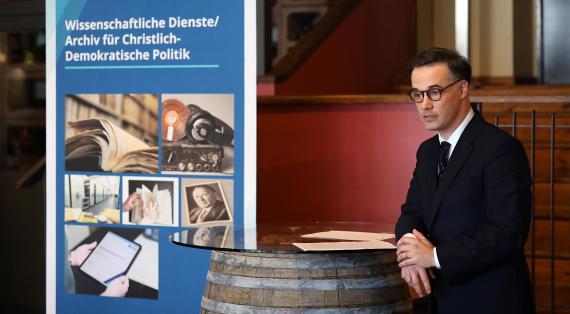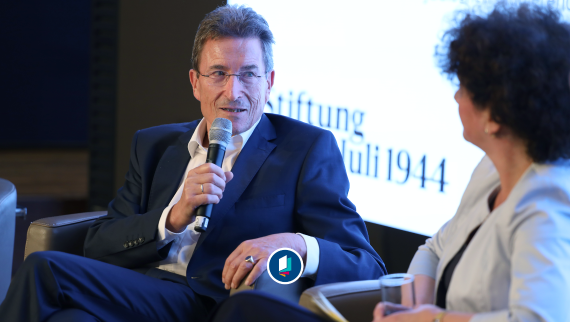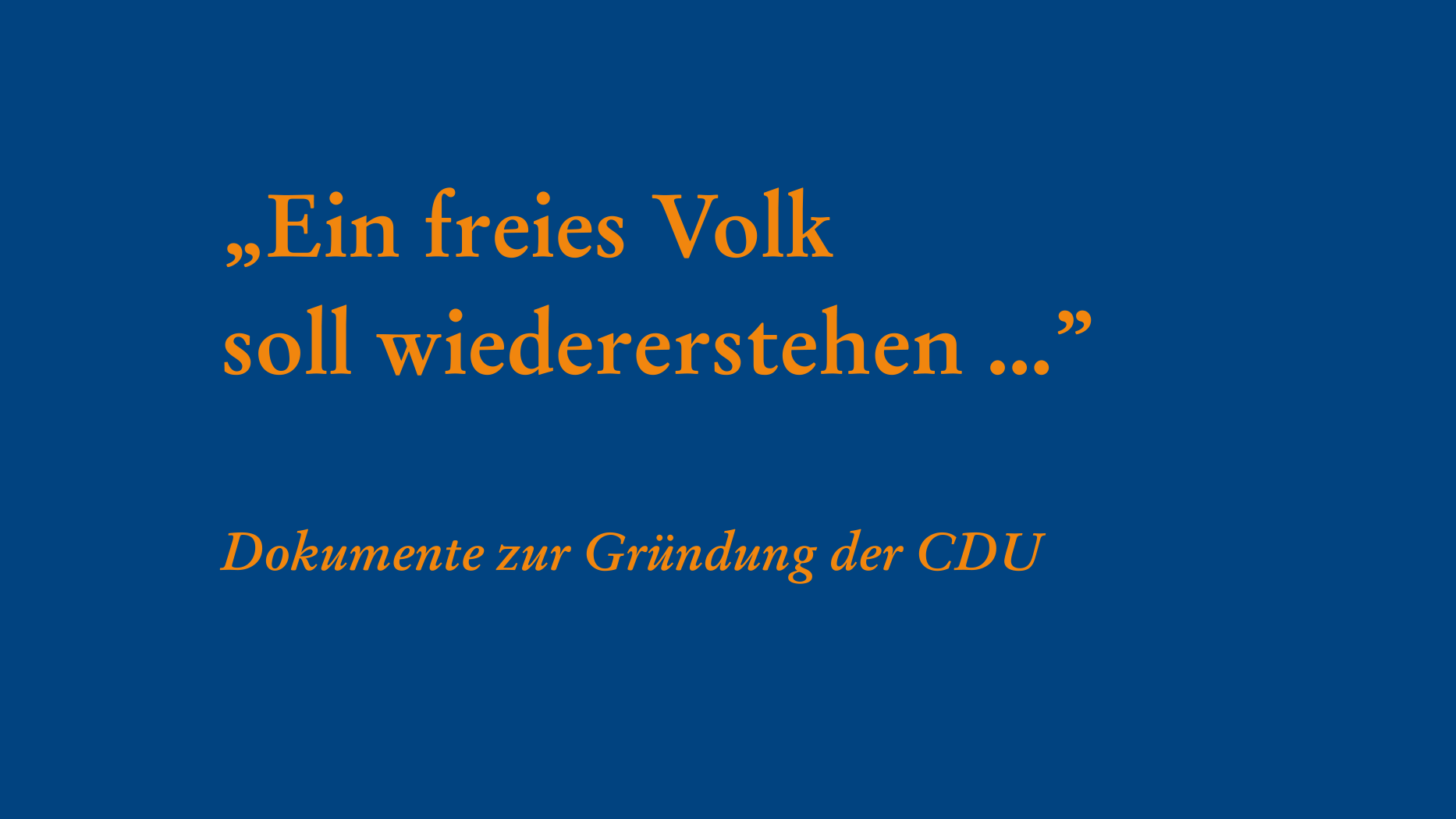The German people can never give up the claim to unity. We are certainly aware that we cannot and must not ever think of enforcing this claim by force. However, the lessons of German history over the last hundred years have given us the deep and firm conviction that law is ultimately stronger than brute force.
At a glance
- The history of Christian democracy is closely linked with German and European history and its developments. Its research is an integral part of our contemporary history work.
- Following the Second World War, 16 associations of the Christian Democratic Union (CDU) were formed at state level. However, the federal party was not founded until 1950 at the party conference in Goslar.
- Under Konrad Adenauer as Federal Chancellor, the ties to the West and European integration were the most important achievements that secured the freedom of the West German state.
- During his chancellorship, Helmut Kohl seized the historic opportunity for German reunification. The founding of the European Union and the introduction of the Euro were also important outcomes of his policies.
- Our Archive for Christian Democratic Politics (ACDP) contains key sources and files on Christian democracy in Germany and Europe. This makes us an important point of contact for the academic community in Germany and abroad.
Content
3. Archive for Christian Democratic Politics
4. Our offers and projects on the topic
5. Publications, events and media contributions on the topic
Founding of the CDU: federal party Is constituted in October 1950 from 16 regional associations
The history of German democracy is associated with fundamental decisions in German and European history. In Germany, the CDU emerged from 1945 as a reaction to the failure of the Weimar Republic, to National Socialism and World War. Sixteen independent regional associations existed until the founding of the federal party at the party congress in Goslar between 20 and 22 October 1950. In Goslar, the delegates adopted the statute of the CDU and elected Konrad Adenauer as the first party leader
Adenauer and Kohl eras: In freedom to the long-awaited German unity
During Konrad-Adenauer’s term of office as Federal Chancellor (1949 to 1963), the Federal Republic of Germany was democratically established, the consequences of war were overcome and the social market economy was implemented. Adenauer’s policy of alignment with the West and European integration secured the freedom of the new state in West Germany.
During Helmut Kohl’s term as Federal Chancellor (1982 to 1998), the historic opportunity for Germany unity in peace and freedom then presented itself, which Kohl was able to realise in close cooperation with the European and transatlantic partners. Fundamental decisions on European integration are in large part due to his politics, too, such as the Maastricht Treaty establishing the EU, the introduction of the euro and the EU’s eastward enlargement in the 1990s.
Archive for Christian Democratic Politics: basis of our work in contemporary history
The key sources for researching Christian Democracy in Germany as well as important files of the European Christian Democracy Associations can be found in the holdings of the Archive for Christian Democratic Politics (ACDP) of the Konrad-Adenauer-Stiftung, which was founded in 1976. Together with a specialist library for the history and development of Christian Democracy, the ACDP is an important contact point for scholars both at home and abroad.
The ACDP forms the basis for the Konrad-Adenauer-Stiftung’s work in contemporary history. With publications, internet portals, and events, we take account of the mission to contribute towards an academically sound understanding of the history of Germany and Europe in recent times.
Our offers and projects on the topic
Archive and Library
Since as early as 1976, the Archive for Christian Democratic Politics (ACDP) has managed, evaluated indexed the written and collected material of the Christian Democratic Movement. In addition to the offers and holdings of the archive, the Konrad-Adenauer-Stiftung maintains a publicly accessible library in St. Augustin, where you can find publications on history, politics, programmes and personalities of Christian Democracy.
Archive for Christian Democratic Politics (ACDP)
The Archive for Christian Democratic Politics secures and indexes the records of the CDU federal party, the CDU/CSU parliamentary group in the German Bundestag, the regional divisions and associations of the CDU, the CDU in the Soviet Occupation Zone/German Democratic Republic, the European associations of Christian Democrats, as well as personal papers of the Union’s leading elected representatives and office-holders throughout Germany and Europe.
Further information and contact persons can be found under Inventory Overview/Database Search.
Learn more about the Archive for Christian Democratic Politics
Library
The total collection of the library comprises approx. 190,000 media, with an annual growth of around 3,000 units. The collection focuses on the history and politics of the CDU and essays on the history and programmes of Christian Democratic parties and personalities.
On the electronic general catalogue.
CIVITAS | Forum of Archives and Research on Christian Democracy
CIVITAS | Forum of Archives and Research on Christian Democracy, founded by Istituto Luigi Sturzo (Rome), KADOC-KU Leuven, Documentation and Research Centre for Religion, Culture and Society (Leuven) and the Konrad-Adenauer-Stiftung e.V., is a platform of research institutes and archives alongside individual archivists and researchers specialised in the fields of research on Christian Democracy at national level, in Europe, and worldwide as well as in the provision of sources and collections.
Website projects
With the website projects on the “History of the CDU”, “Helmut Kohl”, and “Konrad Adenauer”, we offer you a comprehensive collection of information, materials and sources on selected historical themes relating to the history of Christian Democracy in Germany and Europe.
History of the CDU
The portal “History of the CDU” contains numerous sources and articles on the development of Christian Democracy in Germany and Europe along with contemporary history essays on current topics.
Konrad Adenauer
The online portal “Konrad Adenauer” is a joint project with the Stiftung Bundeskanzler-Adenauer-Haus in Rhöndorf. The comprehensive internet platform will provide you with information about phases in life and overviews tracing Adenauer’s life and explaining his political convictions. You will also be in introduced to a photo gallery, a genealogical table and compilation of Adenauer’s inventions and patents as well as an extensive collection of proven quotations. What is more, the portal points the way to familiar and new sources. The range of material is rounded off by explanatory keywords, short biographies of companions and a detailed calendar.
Helmut Kohl
Sources and information on the life and works of Helmut Kohl (1930 to 2017) are the focus us the online portal bundeskanzler-helmut-kohl.de. Thematic articles are devoted to his political convictions and to individual policy fields. The portal is complemented by photo galleries, keywords, biographical information on companions, documents and a bibliography.
Publication series
The publications of our publication series “Research and Sources on Contemporary History” and “Historical-Political Communications” as well as the minutes of the CDU Federal Executive Committee also make a significant contribution to research on the history of Christian Democracy.
Research and Sources on Contemporary History
In the “Research and Sources on Contemporary History” series, the Archive for Christian Democratic Politics has been publishing academic studies on Christian Democracy, depictions on the history of the Federal Republic and the CDU, along with biographies of important representatives since 1980.
Learn more about the Research and Sources on Contemporary History
Historical-Political Communications
The Konrad-Adenauer-Stiftung’s “Historical-Political Communications”, published once each year, present a forum for research and depictions on the history of Christian Democratic movements and parties and their historical background in the context of intellectual, political and social developments of the 19th and 20th centuries. The thematic focus is on Germany and Europe.
Minutes of the CDU Federal Executive Committee Since 1950
The minutes of the CDU Federal Executive Committee are a key source on the history of the Federal Republic of Germany. The academically edited and annotated volumes of the period from 1950 to 1973 are available online.
Learn more about the minutes of the CDU Federal Executive Committee
Event series
Several of the Konrad-Adenauer-Stiftung’s event series are devoted to various aspects, personalities and eras of Christian Democratic politics. Together, we want to get into conversation with interested citizens and researchers and play a role in reappraising, recognising, and critically examining Christian Democracy in Germany and Europe within the framework of lively discussions.
The Kohl Era Under Discussion
The goal of the series that has been in existence since 2010, is to contribute towards research on the Kohl era and thus to the historisation of the Federal Republic of Germany’s recent history. The main emphasis of the event series is on the exchange of contemporary witnesses, historians and journalists. The meeting contributions are regularly published in the “Historical-Political Communications” edited by the Archive for Christian Democratic Politics.
Goslar Speech
The Goslar Speech commemorates the first Federal Party Conference of the CDU, which took place between 20 and 22 October 1950 in Goslar, and led to the constitution of the federal party from what were previously largely independent state associations. Besides commemoration, current Christian democratic issues are also discussed at the event, in which prominent CDU personalities regularly participate as speakers.
Living Tribute to Konrad Adenauer
Together with the Stiftung Bundeskanzler-Adenauer-Haus, for many years the Konrad-Adenauer-Stiftung has been inviting people to a joint annual kick-off on 5 January (Konrad-Adenauer’s birthday). The event focuses on the memory of Konrad Adenauer, his work and achievements, but also on linking the past with questions of the present and future. The annual kick-off event is framed by the wreath-laying ceremony at the Rhöndorf forest cemetery where Konrad Adenauer is buried.
Ludwig-Erhard Colloquium
The Ludwig-Erhard Colloquium, organised jointly by the Konrad-Adenauer-Stiftung and the Ludwig-Erhard-Stiftung, not only commemorates the first Federal German Minister of Economics, but also focuses on aspects of economic history and their connection to current regulatory policy debates. We want to use this concept to contribute to the design and further development of the social market economy with the expert discussion.
In the Footsteps of Konrad Adenauer on Lake Como
Konrad Adenauer spent many of his holidays at Villa La Collina on Lake Como in Italy. However, the villa was not only for relaxation; German politics were also shaped here. Government was by telephone and telefax. Adenauer regularly received high-ranking guests such as the ministers Richard Stücklen, Heinrich von Brentano, Theodor Blank or Franz-Josef Strauß. Hence, this is a historic place where you can find extensive information about the life and work of the first German Federal Chancellor. We therefore warmly welcome you to combine your political and historical interest with a stay at the beautiful Lake Como and to participate in our seminars in Cadenabbia.




